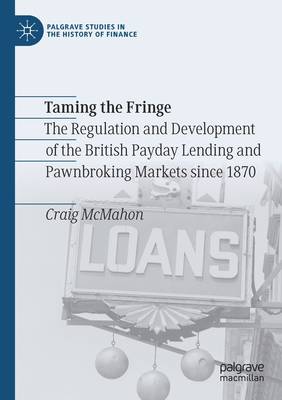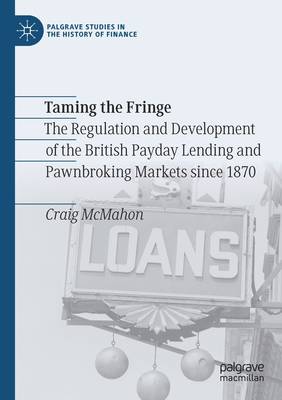
- Retrait gratuit dans votre magasin Club
- 7.000.000 titres dans notre catalogue
- Payer en toute sécurité
- Toujours un magasin près de chez vous
- Retrait gratuit dans votre magasin Club
- 7.000.000 titres dans notre catalogue
- Payer en toute sécurité
- Toujours un magasin près de chez vous
Taming the Fringe
The Regulation and Development of the British Payday Lending and Pawnbroking Markets Since 1870
Craig McMahon
126,95 €
+ 253 points
Format
Description
Offers the first extended study of the payday lending and pawnbroking markets in Britain, and the only one to examine over 160 years of financial results and market dataAnalyses the motivation, content and outcome of critical regulatory episodes that have shaped fringe bankingAdds to our knowledge of fringe banking and the evolving role of financial regulation to protect the working poor
Spécifications
Parties prenantes
- Auteur(s) :
- Editeur:
Contenu
- Nombre de pages :
- 234
- Langue:
- Anglais
- Collection :
Caractéristiques
- EAN:
- 9783030706173
- Date de parution :
- 11-04-22
- Format:
- Livre broché
- Format numérique:
- Trade paperback (VS)
- Dimensions :
- 148 mm x 210 mm
- Poids :
- 331 g







